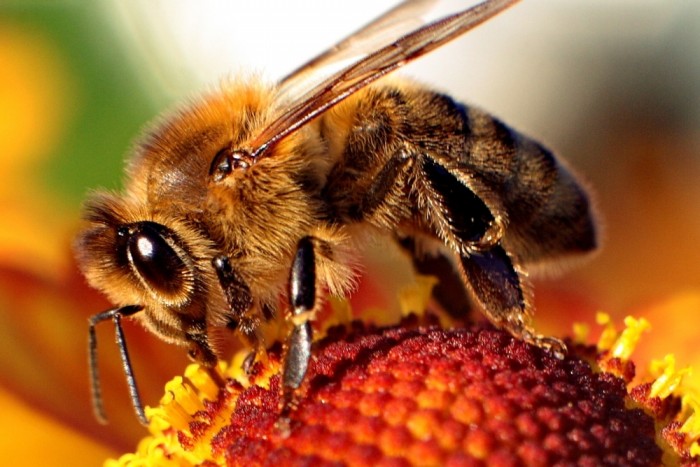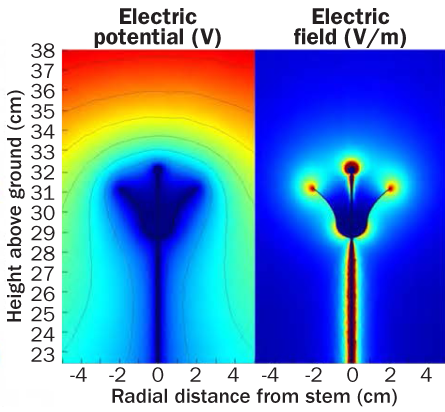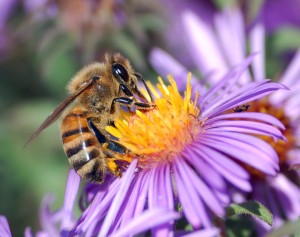We all know that flowers attract bees and other pollinators to help them reproduce. And in this week’s Science magazine, we get more insight into how it’s done. As it turns out, bees use the electric fields around flowers to sense whether it might contain pollen. The bees can also tell by the electric field whether a flower has just recently been visited by another bee.
Plants tend to conduct electricity into the ground. This gives the flowers at the top a slight negative charge compared to the air around them. Bees on the other hand pick up positive charges as they fly around. These charges are caused by friction with the air and between body parts. When bees touch the flowers they attract the negatively charged pollen particles from the flowers. And the electric field of the flower is reduced so that when the next bee flies by it can tell that it has just been visited.
Researchers studied this phenomenon setting up electrically charged disks to stand in as flowers. Half of the disks contained sugared water and the other contained quinine, which is the bitter substance that gives tonic water it’s flavor. When the disks weren’t charged, bees landed on the disks at random landing on the bitter flowers just as often as the sweet ones. But when the sweet disk was charged, they visited it with 81% accuracy. They used the electric charge to hone in on the sweet “flowers”.
In addition to this, the plant conducts electricity, as the bee comes in closer proximity and eventually touches the flower. And once the bee leaves, the change in the plants electric field remains changed for about 2 minutes, as it build up negative charge again. During this period, the reduced electric field may serve as an indicator for other bees to know that the flower has just been visited so that they don’t stop by the pollenless plant.
Much more at the link, including how they use the electric field as an aid in determining shapes.
Source: D.Clarke et al. Detection and learning of floral electric fields by bumblebees. Science. Published online February 21, 2012


